Table of Contents
Dealing with depression isn’t easy, but finding effective treatments can be even more challenging for those who prefer not to use medications.
If you’re exploring how to treat depression without medications, several approaches may help manage and potentially alleviate symptoms using alternative and natural methods.
What Is Depression?
According to the WHO, Depression is a common but serious mood disorder that affects how you feel, think, and handle daily activities.
It’s more than just feeling sad or going through a rough patch; it’s a persistent problem that can cause significant challenges in everyday life.
Exploring the depths of depression helps us understand its impact and the importance of seeking effective treatments, potentially leading one to discover how to treat depression without medications.
The Faces of Depression
Depression doesn’t look the same for everyone.
Symptoms can range widely but typically include feelings of sadness, emptiness or hopelessness, loss of interest in activities once enjoyed, changes in appetite or weight, sleep disturbances, lack of energy, and difficulty concentrating.
Understanding these symptoms is the first step towards recognizing the need for help and ultimately discovering paths on how to treat depression without medications.
Causes and Risk Factors
The exact cause of depression is unknown, but multiple factors contribute to its onset.
Genetics, brain chemistry, personality, and environmental factors play a role.
Stress, loss, and significant life changes can also trigger symptoms of depression, making it a complex condition that requires a multifaceted approach to treatment.
Approach to Treatment
Treating depression effectively often involves a combination of methods.
While medications can be beneficial for many, some prefer to explore how to treat depression without medications due to concerns over side effects or personal preferences.
Thankfully, several alternatives offer hope and healing.
Exploring How to Treat Depression Without Medications
Exercise
One of the easiest and most cost-effective ways to treat depression without medications is through regular physical activity.
Exercise isn’t just for physical health; it has profound benefits for mental health, too.
Engaging in physical activities like jogging, cycling, swimming, or even daily walks increases the production of endorphins, chemicals in your brain that act as natural mood lifters.
Consistent exercise can help reduce symptoms of depression and elevate your overall mood.
Maintain a Healthy Diet
What you eat directly affects how you feel.
A balanced diet of vegetables, fruits, whole grains, and lean proteins can help stabilize your mood.
Foods high in omega-3 fatty acids, such as salmon and flaxseeds, and those rich in folic acid, like spinach and avocado, may have depression-fighting properties.
While changing your diet won’t cure depression, it can help as a part of a comprehensive approach to managing depression symptoms.
Get Plenty of Sleep
Sleep and mood are closely connected.
A lack of sleep can exacerbate the symptoms of depression, making it a vicious cycle that’s hard to break.
To manage how to treat depression without medications, it’s crucial to focus on getting regular, restful sleep.
Establishing a nightly routine, reducing screen time before bed, and creating a comfortable sleeping environment can support better sleep and, subsequently, better mood stability.
Try Mindfulness and Meditation
Mindfulness and meditation are powerful tools for managing depression.
These practices involve focusing your mind on the present moment and can help you maintain a distance from depressive thoughts.
Regular meditation can decrease stress and anxiety levels, which are often high in people with depression.
Many free resources and apps can guide beginners through meditation exercises.
Engage in Therapy
Therapy is a cornerstone in the realm of how to treat depression without medications.
Cognitive Behavioral Therapy (CBT), in particular, is highly effective in treating depression.
It helps individuals identify and change negative thought patterns and behaviors that contribute to depression.
Therapy offers a safe space to explore your feelings and develop coping strategies in the presence of a professional, which can be incredibly beneficial in managing depression symptoms.
Build a Support Network
Isolation can worsen symptoms of depression.
Connecting with friends, family, or support groups can provide emotional support and reduce feelings of isolation.
Sometimes, just talking about your experiences and feelings can lighten the burden of depression.
Strong social ties can provide encouragement and support throughout your journey of managing depression.
Set Realistic Goals
When you’re depressed, even small tasks can feel insurmountable.
Setting daily or weekly goals can provide a sense of accomplishment.
These goals don’t need to be monumental; even small achievements like doing the dishes or going for a walk can build momentum and a sense of achievement that can combat feelings of worthlessness or failure often associated with depression.
Embrace Routine
Depression can strip away the structure of your life.
One way to treat food for those searching for ways to treat depression without medications is to create a daily routine.
A predictable routine can provide a framework that offers comfort and a sense of control.
Integrating set times for meals, exercise, sleep, and other personal activities can help stabilize your mood over time.
Other Treatments for Depression
Physical Activities for Mental Health
One of the most accessible ways to manage depression is through physical exercise.
Engaging in activities like walking, jogging, swimming, or yoga can significantly boost mood and reduce symptoms of depression.
Exercise stimulates the production of endorphins, often referred to as the body’s natural mood lifters.
It’s also a core component for managing stress and improving sleep—all of which are crucial when exploring how to treat depression without medications.
A Nutrient-Rich Diet
Nutrition plays a considerable role in managing depression.
Eating a diet rich in fruits, vegetables, lean proteins, and whole grains can help stabilize mood and improve overall health.
Steering clear of processed foods, excessive caffeine, and sugar can also be beneficial.
Studies have suggested that certain nutrients, such as omega-3 fatty acids, vitamin D, and B vitamins, may help with depression, making dietary choices an important factor when considering how to treat depression without medications.
Restful Sleep Is Key
Quality sleep is often elusive for those struggling with depression, yet it’s an essential part of managing the condition.
Improving sleep includes following a consistent schedule, creating a calming bedtime routine, and ensuring your bedroom is restful.
Limiting screen time before bed and reducing caffeine intake can also improve sleep.
Therapeutic Approaches
Talking therapies, like Cognitive Behavioral Therapy (CBT), Interpersonal Therapy (IPT), and Dialectical Behavior Therapy (DBT), are effective alternatives for those wondering how to treat depression without medications.
These therapies help individuals work through their emotions, develop coping strategies, and change unhealthy thinking and behavior patterns.
The Role of Mindfulness and Meditation
Mindfulness and meditation practices serve as another pathway for individuals learning how to treat depression without medications.
These practices focus on being present in the moment and can help reduce negative thinking patterns that contribute to depression.
Techniques such as deep breathing, guided imagery, and mindfulness exercises offer a refuge from the stresses of daily life and promote a sense of calm.
Embracing Social Support
Humans are social creatures, and having a strong support network is crucial for emotional well-being.
Friends, family, and support groups provide encouragement, understanding, and a sense of belonging.
Sharing experiences can make you feel less alone in your struggle; sometimes, just having someone listen can be remarkably healing.
Achieving a Balanced Routine
Establishing a regular daily routine can also make a difference in managing depression.
Having a structured schedule can provide a sense of predictability and purpose, which is especially helpful when dealing with the unpredictability of depression symptoms.
Including time for activities that bring joy and relaxation is also essential in how to treat depression without medications.
Light Therapy
Light therapy is a unique approach that’s particularly useful for individuals with seasonal affective disorder (SAD), a type of depression correlated with seasonal changes.
It involves sitting near a device that emits bright light, mimicking natural sunlight.
This therapy can also be helpful for non-seasonal depression by regulating the body’s internal clock and reducing symptoms.
Alternative and Complementary Treatures
Some people explore additional complementary options, such as acupuncture, herbal supplements, and massage therapy, when looking at how to treat depression without medications.
While the effectiveness of these treatments can vary, they may provide relief for some, especially when used in conjunction with other approaches.
Integrative Strategies
Depression is a complex condition, and there’s no one-size-fits-all solution.
Combining various strategies—like physical activity, a healthy diet, solid social networks, and therapy—can create a comprehensive plan for managing depression.
Personalizing the approach ensures it aligns with your needs, preferences, and lifestyle.
Conclusion
Knowing how to treat depression without medications involves multiple facets of life, from physical activity and diet to therapy and social support.
While it’s important to remember that severe depression might require professional treatment and possibly medications, these natural approaches can offer significant benefits.
Consider consulting with a healthcare professional before making significant changes to your lifestyle.
Each small step can lead to better mental health and a happier life.
If you’re navigating the journey toward mental wellness and seeking alternatives to managing depression without reliance on medications, the Houston Center for Counseling is here for you.
Our team, deeply experienced in understanding both the psychological and physiological dimensions of depression, offers a breadth of services tailored to support your unique path to healing.
We provide the tools and guidance necessary for profound, lasting recovery, from EMDR therapy to skills for coping with nervous system dysregulation.
Explore how our approach can make a difference for you, and don’t hesitate to reach out and schedule your visit today.
Your journey towards renewed hope and well-being starts with a single step.
Read more about our available services or connect with us to help you determine which is the best help for you.
- Childhood Trauma/Complex PTSD
- EMDR Therapy
- Intensive EMDR
- Ketamine Assisted Therapy for Individuals or Group
- Adjunct EMDR Therapy
- Individual and Group Therapy



